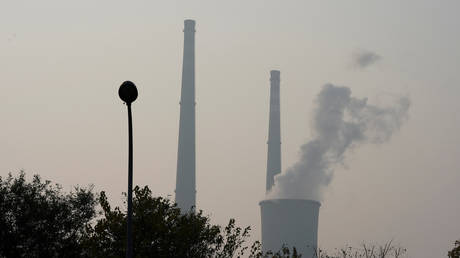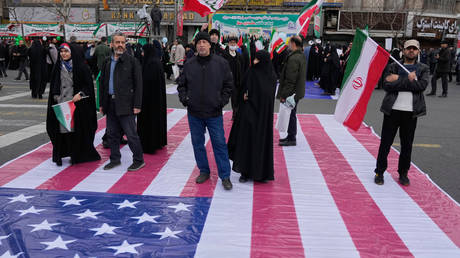
Beijing has officially rolled out its repeatedly delayed Emission Trading Scheme (ETS), aimed at reducing its greenhouse gas output. Beijing is expecting its emissions to peak before 2030 and become “carbon neutral” by 2060.
The scheme officially entered into force on Monday, covering some 2,260 power plants across the nation. Said plants contributed to around 40 percent of all the carbon dioxide emissions China produced last year.
At later stages, the ETS will also include other enterprises that produce a minimum of 24,000 tons of carbon equivalent a year.
The ETS scheme is founded on a market-based approach to regulation of greenhouse gas emissions. The idea of carbon trading was first conceptualized under the Kyoto Protocol back in 1997. Such schemes involve the introduction – through allocation or selling – of a limited number of permits, allowing enterprises to produce a set amount of gases over a specific time period. If a company breaches its emission limit, it has to buy additional permits, and if it emits less than its limit allows it can sell off the excess permits for profit.
In China, distribution of emissions permits under the ETS will be supervised by the Ministry of Ecology and Environment (MEE). Unveiling the pilot variant of the ETS scheme earlier this month, the ministry said it was an important step towards meeting the climate goals envisioned by the Chinese government.
“For the first time, the responsibility for controlling greenhouse gas emissions at the national level is consolidated to the enterprise,” MEE said in a statement.
China’s ambitious climate goals were outlined by President Xi Jinping back in September last year. The country plans to reach its peak emissions before 2030 and gradually reach “carbon neutrality” by 2060.
The rollout of the ETS comes days after the US criticized China’s achievements in the climate change field, with President Joe Biden’s special climate envoy, John Kerry, branding Beijing’s promises “not good enough.”
This assessment has provoked an angry reaction in Beijing, with the country’s Foreign Ministry shooting back at the American accusations. The ministry took a jab at Washington’s withdrawal from the Paris Agreement under Donald Trump, pointing fingers at the massive greenhouse gas emissions produced by the US.
“The United States is the world’s largest polluter in history and the current largest polluter. The previous government’s climate action has seriously regressed, withdrew from the Paris Agreement, and refused to undertake emission reduction funding obligations,” Foreign Ministry spokesperson Zhao Lijian said last week.
Think your friends would be interested? Share this story!




